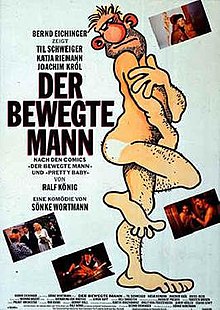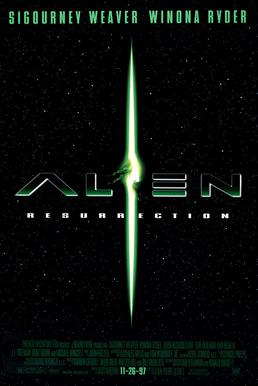 Earlier this year, I watched the remake of this film, which you can find at this link. I always like to see the original first but it just didn't work out that way because they were on competing lists (the server I got from Rob and Netflix). Plot-wise, both movies match up pretty well but there are some key differences.
Earlier this year, I watched the remake of this film, which you can find at this link. I always like to see the original first but it just didn't work out that way because they were on competing lists (the server I got from Rob and Netflix). Plot-wise, both movies match up pretty well but there are some key differences.David (Dustin Hoffman) and his wife Amy (Susan George) have moved from the United States to her childhood home in England to get away from the pervasive violence happening at that time. David is working on a mathematical explanation of stellar phenomena and Amy is bored. They hire locals to re-roof the garage, one of whom is Amy's former boyfriend (Del Henney). The locals start a campaign of harassment against David in particular, mostly out of jealousy, becoming more brazen every time he doesn't react. An accident involving a local mentally disabled man (David Warner) leads to a showdown/siege of David and Amy's home.
Some of the differences I liked, and some I thought were interesting choices. There wasn't really anything in the movie that I hated, but I wouldn't rush to see it again.
The casting of the original is definitely better than the remake, especially the character of Henry Niles (played by David Warner) who was changed to Jeremy Niles in the remake (and played by Dominic Purcell). There is a world of difference between the tall, gangling awkwardness of Warner and the hulking form of Purcell. Personally, I thought Warner seemed more authentic, especially during the siege when he panics at the thought of being handed over to the mob.
The rape is handled with more ambiguity in the original. Let me be clear here. Both are very obviously rape scenes but the Amy character reacts slightly differently in each movie. 2011 Amy (played by Kate Bosworth) shuts down completely after being overpowered by Charlie, the former boyfriend (played by Alexander Skarsgaard), withdrawing into herself to cope with the trauma. Charlie recognizes it and is ashamed, which factors in later on in the film. 1971 Amy is also overpowered by Charlie (played by Del Henney) but about halfway through, she starts to respond to him. This could have just been to make it a little easier on herself, to reduce the amount of violence being used, but it also kind of indicates that she might still have feelings for Charlie.
I would like to reiterate that it's still very much rape. Neither incarnation of Amy ever gave any kind of non-coerced consent. It's just interesting to me to see how differently the directors handled the same material.
 Our little odyssey through one hundred years of German cinema is drawing to a close. We're now in the reunification period of the early 90s, a terrible decade. After producing about thirty years of avant-garde government-subsidized cinema, German directors said "Fuck it, let's make money!" and started copying Hollywood in earnest. That gives us this "relationship comedy" that is somehow better and worse than its American counterpart.
Our little odyssey through one hundred years of German cinema is drawing to a close. We're now in the reunification period of the early 90s, a terrible decade. After producing about thirty years of avant-garde government-subsidized cinema, German directors said "Fuck it, let's make money!" and started copying Hollywood in earnest. That gives us this "relationship comedy" that is somehow better and worse than its American counterpart. Since I'm so terribly behind on my Christy Experiment, we've decided to try something a little different. I bought this movie a while back but hadn't gotten around to seeing it yet (alphabet). Christy also owned it, so for Easter we watched it together. Separately. In our own homes. 900 miles apart.
Since I'm so terribly behind on my Christy Experiment, we've decided to try something a little different. I bought this movie a while back but hadn't gotten around to seeing it yet (alphabet). Christy also owned it, so for Easter we watched it together. Separately. In our own homes. 900 miles apart. 
 And now we move into the shitty phase of this franchise where we've replaced the badassness of Linda Hamilton with the coldness of Kristanna Loken.
And now we move into the shitty phase of this franchise where we've replaced the badassness of Linda Hamilton with the coldness of Kristanna Loken.  This is one of those movies that's all right up until about the last fifteen minutes and then it's awful.
This is one of those movies that's all right up until about the last fifteen minutes and then it's awful. 
 We're moving back in time a little bit and over the Berlin Wall to examine a piece from the Western part of Germany.
We're moving back in time a little bit and over the Berlin Wall to examine a piece from the Western part of Germany.  I think you could make a strong case for this being a better film than its predecessor.
I think you could make a strong case for this being a better film than its predecessor. 
 We're moving into more recognizable names now as we hit the end of the original quadrilogy. I think I'll categorize
We're moving into more recognizable names now as we hit the end of the original quadrilogy. I think I'll categorize  Our continued tour of German films takes us to East Germany in the mid-60s. This film was one of twelve (an entire year's output) that were banned by East German authorities as critical of the socialist regime. It had an eight-day theatrical run because they had already spent the money to advertise for it, and then was promptly shelved until the Berlin Wall came down.
Our continued tour of German films takes us to East Germany in the mid-60s. This film was one of twelve (an entire year's output) that were banned by East German authorities as critical of the socialist regime. It had an eight-day theatrical run because they had already spent the money to advertise for it, and then was promptly shelved until the Berlin Wall came down.